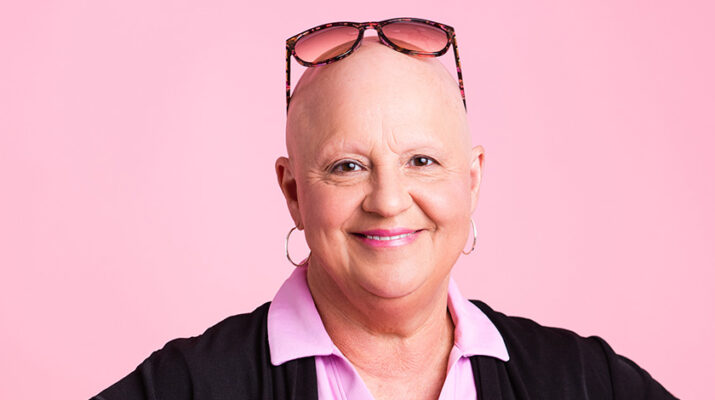By Deborah Jeanne Sergeant
The FDA announced in June its approval of baricitinib (brand name Oluminant, among others) to treat alopecia areata.
Many people experience hair thinning and loss related to aging or medication. Alopecia areata is different. The autoimmune disease causes sudden, round patches of hair loss all over the head.
The patches may grow in size and come and go in different areas over weeks and months. Alopecia totalis means that all of the hair on the patient’s head falls out and alopecia universalis refers to complete bodily hair loss.
About 6.8 million Americans have alopecia areata.
For Tracy Higginbotham, the benefits of baricitinib offer hope of regrowing her full head of hair. At present, taking prescription Oluminant for 45 days has started her hair growing again. Higginbotham leads Women TIES, a women’s business promotion organization in Syracuse and is the author of Under the Rose-Colored Hat, an autobiography of her alopecia areata journey.
For many years, she had experienced the patchy hair loss of alopecia areata, treating it with medication such as steroids and cortisone. In 2006, she lost 80% of her hair, which she believes was prompted by the stress of her father’s unexpected death. Her hair grew back, but in 2018, the death of her stepmother plunged her back into alopecia universalis—complete hair loss from her entire body.
“It was very difficult,” Higginbotham said. “I was also going through menopause. It could be something with the hormones.”
During the pandemic, she caught COVID-19 and lost all the hair that she had grown, one and a half inches long.
Thanks to taking Oluminant, “I have hair growing, my eyebrows are growing back. I have eyelashes in every place where I should have them growing,” she said. “My eye doctor noticed that at my last appointment.”
She said that she’s remaining “cautiously optimistic” that her hair is back to stay.
Diagnosed in 1997, Thea Chassin of Scarborough, founded awareness and support group Bald Girls Do Lunch, Inc. She decided that baricitinib is not right for her, but she can also understand why many women with alopecia areata feel eager to try the medication.
“The stigma of female hair loss is very big in our culture,” Chassin said. “Women feel less feminine and have concerns about their looks and acceptance should they choose to go without supplemental hair. There’s a lot of worry about feeling normal and feeling they fit in. Our society prizes hair, not just in the US. Hair is a defining part of a woman in most cultures. A lack of hair is a very big deal. It affects self confidence and self-esteem.”
Although Chassin appears publicly without a head covering, she knows that many women do not feel that is the right choice for them.
Beyond appearance, a lack of hair otherwise affects health. Without eyebrows and eyelashes, dust and sweat get into the eyes easier and mucus flows readily out of the nose without hairs to stop it. Chassin said that some people with alopecia areata have painfully brittle fingernails.
She views wearing wigs, scarves, hats, turbans or nothing at all on one’s head as daily choices that women with alopecia areata can make, depending on their situation or preference.
Chassin’s hair fell out slowly in patches and in overall thinning for three decades. Eventually, it had fallen out to the point where it “was hair, but not a hairdo,” she said.
She likened her appearance then to Bozo the clown.
“When I shaved it off, I felt like a huge weight had been lifted off me,” she said. “It was truly a step forward to self-acceptance.”
She also felt a powerful sense of control over a situation which had previously spun out of control for years.
For women interested in medication, Chassin views baricitinib as “a game-changer.
There are many people who have been waiting for a medication that they can try. Previously, the options were limited. It’s an opportunity for people to try something if they’re not contraindicated. It doesn’t work 100% in everybody, but for those who want to try it, it’s FDA-approved.”

